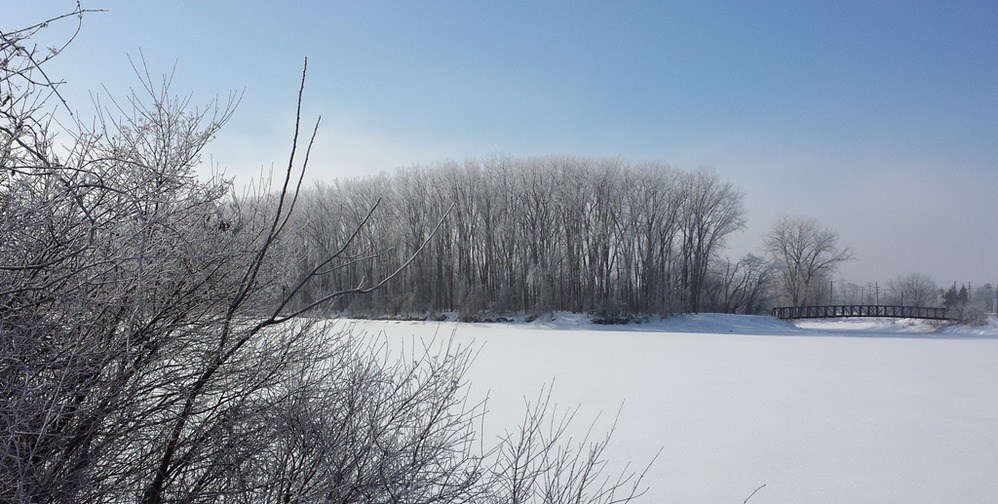Part of a series of articles titled 2024 Preservation Planning Grants Highlights.
Article
A Cold and Bloody Morning: Expanding on the Archeological Survey of the River Raisin Battlefield.

NPS
Recipient: University of Michigan
Amount: $169,121.00
During the cold winter of 1813, American forces led by Brigadier General James Winchester moved to recapture Fort Detroit from the British and a confederation of their tribal allies. Initially successful in their advance, taking Frenchtown (present-day Monroe, Michigan) 40-miles south of the fort, the Americans were caught off guard by a surprise counterattack on the morning of January 22 by a joint force of British Regulars, Militia, and Native Warriors under Colonel Henry Procter.
The main battle at Frenchtown lasted less than 30 minutes and came to a climax when the American right-flank broke beside the frozen River Raisin, isolating pockets of Kentucky Militia inside the town. The militia would resist for a few more hours, but ultimately surrender when assured of good treatment by the British. A devastating defeat, American forces were - for all practical purposes -annihilated, with over 500 men taken prisoner and approximately 400 killed, out of a force of approximately 1,000 men. The aftermath was equally grim. After Proctor removed the American prisoners to the Canadian side of Lake Erie, some Native Warriors returned to Frenchtown and killed wounded American Soldiers that had been left behind after the battle. An act most modern historians believe to be in retaliation for the mutilation of Native Warriors by the Kentucky Militia on January 18.
The Battle of the River Raisin remains a poignant chapter in American history, highlighting the brutal nature of warfare in the Midwest and the complex and critical role of Native alliances that shaped the War of 1812. A time period that has been the focus of study by the Anthropology Department at the University of Michigan for over two years. Using the financial support of a Preservation Planning Grant, the university will expand upon a previous grant funded study to determine what subsurface remains of the battlefield still exist on property owned by the City of Monroe, and complete an analysis of “orphaned” archeological collections in the Monroe County Museum.
Preservation Planning Grants from the National Park Service’s American Battlefield Protection Program support a variety of projects that are focused on the preservation and interpretation of sites of armed conflict, including battlefields and associated sites on American soil. In addition to this grant opportunity, the program also provides financial assistance through Battlefield Land Acquisition Grants, Battlefield Interpretation Grants, and Battlefield Restoration Grants, to help generate community-driven stewardship of historic resources at the state, tribal and local levels.
Last updated: August 6, 2024
